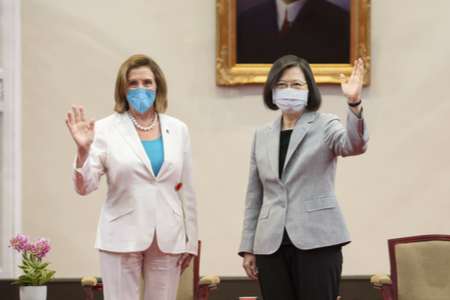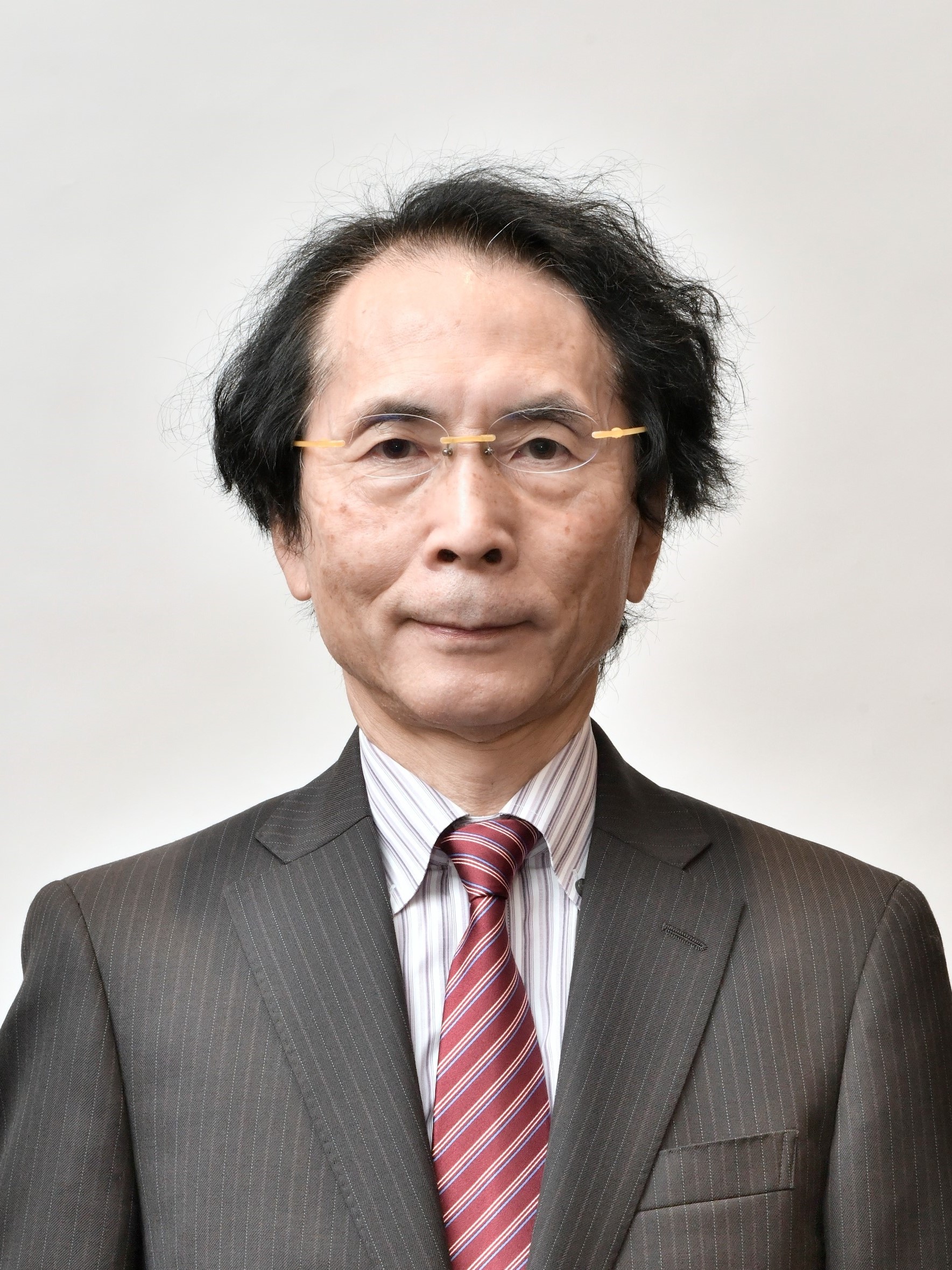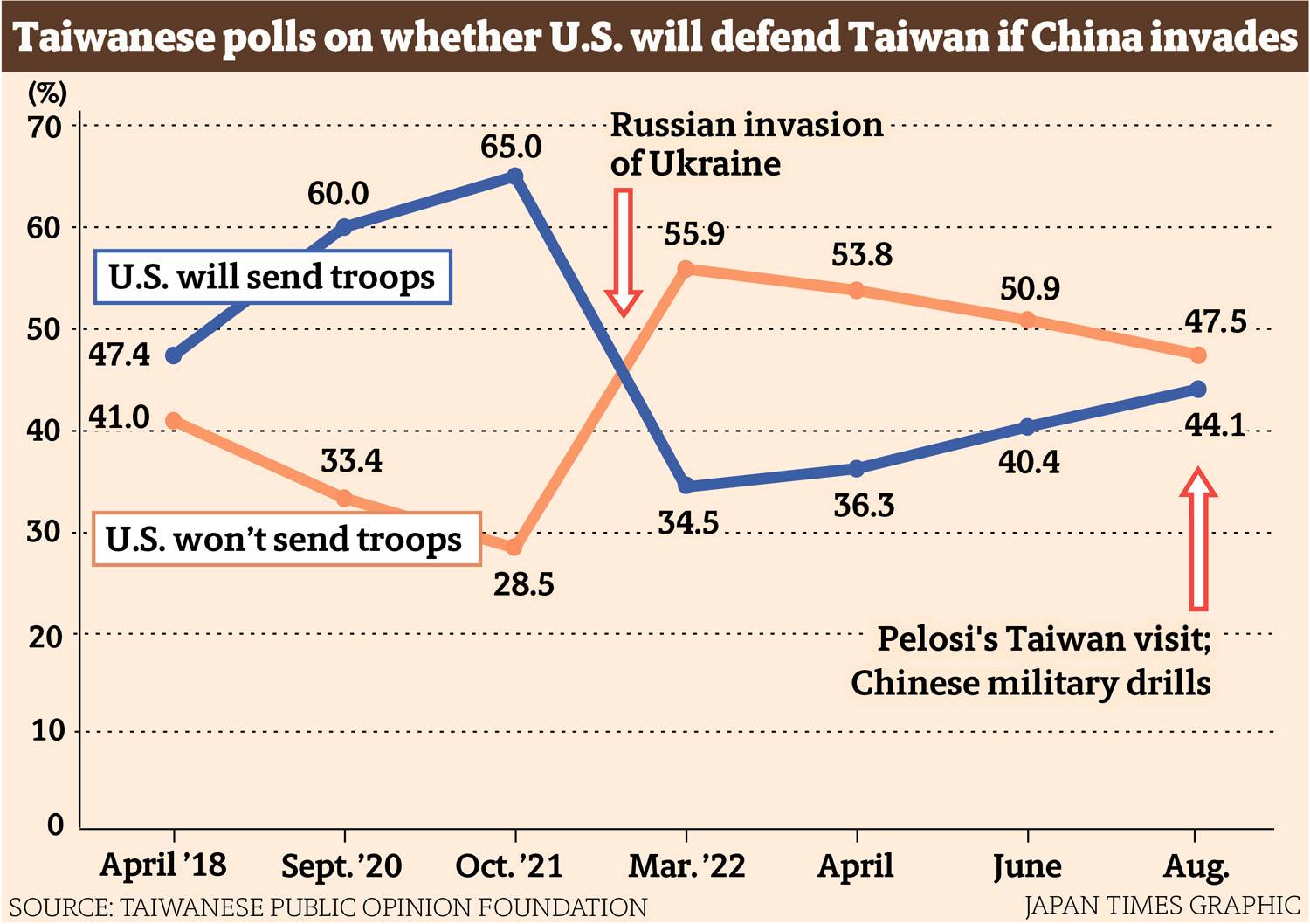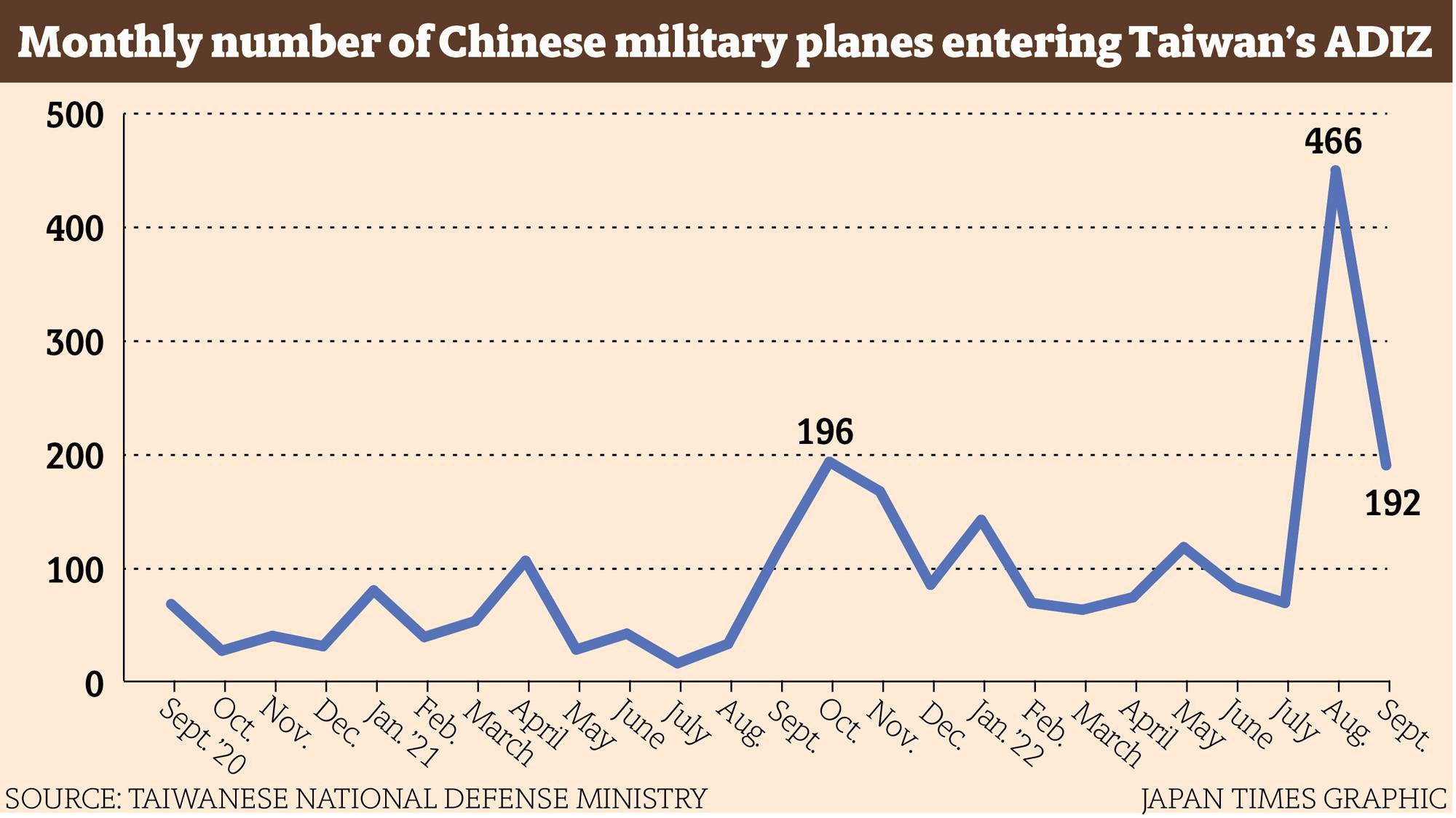Geoeconomic Briefing is a series featuring researchers at the IOG focused on Japan’s challenges in that field. It will also provide analyses of the state of the world and trade risks as well as technological and industrial structures. (Editor-in-chief: Dr. SUZUKI Kazuto, Director, Institute of Geoeconomics (IOG); Professor, The University of Tokyo)
This article was posted to the Japan Times on October 17, 2022:
https://www.japantimes.co.jp/opinion/2022/10/17/commentary/world-commentary/pelosi-visit-taiwan/
API Geoeconomic Briefing

Photo: Taiwan Presidential Office/AP/Aflo
October 17, 2022
What did Nancy Pelosi’s visit do for Taiwan?
OGASAWARA Yoshiyuki
Professor, The Institute of Global Studies, Tokyo University of Foreign Studies

When U.S. House Speaker Nancy Pelosi visited Taiwan in August, China conducted large-scale military exercises around Taiwan immediately afterward, leading to increased tensions regarding the situation surrounding the Taiwan Strait.
What did Pelosi’s visit bring to Taiwan? Different perspectives show different pros and cons from the visit for the island.
Pelosi arrived in Taipei on the night of Aug. 2, meeting with Taiwan President Tsai Ing-wen and other officials including lawmakers, industry leaders and human rights activists the following day, before leaving the island late that afternoon.
It was the day after, on Aug. 4, that China’s military drills kicked off.
During her visit, Pelosi praised Tsai as the first female president in Taiwan and threw a spotlight on the island’s elevation of gender equality.
She also visited the National Human Rights Museum, located in a former detention center for political prisoners from the nearly four-decade period of authoritarian rule in the island.
One purpose of the trip, Pelosi said, was to show the world the Taiwanese people’s “courage to change their own country to become more democratic.”
During the visit to the museum, Pelosi met with Lam Wing-kee — a Hong Kong bookseller and publisher of texts critical of the Chinese Communist Party, who fled Hong Kong and came to Taiwan — apparently to demonstrate her strong interest in pro-democracy activists of Hong Kong and her support for Taiwan, which has accepted asylum seekers from Hong Kong.
Freedom and democracy represent the most significant factors in differentiating Taiwan from China, and Pelosi played the role of specifically highlighting the differences. This has worked to Taiwan’s advantage.
Military drills
In the drills, multiple Chinese military planes crossed the median line in the Taiwan Strait and a number of Chinese warships approached Taiwan’s east coast, sailing close to its territorial waters.
Such military activities have continued even after the end of the drills.
In August, Chinese warplanes entered Taiwan’s air defense identification zone, or ADIZ, a total of 446 times, greatly exceeding the previous monthly record high of 196 posted in October 2021.
Moreover, while it had been rare for the Chinese military to fly its aircraft across the median line, such acts have become common, with 302 planes crossing the line in August.
The median line had functioned as an unofficial border that protected Taiwan’s main island, but a growing number of median-line incursions by Chinese sorties is making the line look increasingly meaningless.
Pelosi’s visit to Taiwan gave Beijing an excuse to move a step closer to Taiwan’s main island militarily, and create a battle formation surrounding the island.
This has an adverse impact on Taiwan. Yet, it still remains difficult for the Chinese military to actually invade Taiwan’s main island.
Public reactions
Some opinion surveys conducted in Taiwan have shown how the public reacted to the drills.
According to an opinion poll by the Taiwanese Public Opinion Foundation, 17.2% of respondents expressed fear over the Chinese drills, while 78.3% — an overwhelming majority — said they were not afraid of the Chinese maneuvers.
The results back up reports by the Taiwanese media and social media that said the Taiwanese people were leading a normal life even when the military exercises were taking place.
If they had panicked, that would have been just what Beijing wanted.
Such a characteristic of the Taiwanese people can be described as the “great power of unresponsiveness,” partly because they are well aware of China’s intention to force them to give in through intimidation.

The survey also said that a majority of the respondents supported Pelosi’s visit, with 52.9% saying they welcomed her and 24% saying they didn’t.
A separate survey by the Taiwanese newspaper United Daily News showed that 35% of respondents said the benefits of Pelosi’s visit outweighed the disadvantages for Taiwan, 44% said it would do more harm than good to the island and 12% had a mixed view, indicating that more people see the demerits outweighing the merits of the visit.
While the Taiwanese public generally welcomed Pelosi’s visit, they are viewing the strengthened pressure from China in a realistic manner.
Concerning the likelihood of the United States sending troops to help defend Taiwan in the event of a Chinese attack, the foundation’s poll said 44.1% believe Washington would intervene, while 47.5% did not think so. A similar trend was seen in the United Daily News survey.
In the foundation’s past opinion polls, the percentage of people who believe in U.S. intervention always exceeded those who thought otherwise, but the situation reversed after Russia’s invasion of Ukraine.
Because the U.S. only offered weapons to Ukraine following Russia’s invasion of the country and did not send troops, anticipation among the Taiwanese public for U.S. military intervention in the event of a contingency in Taiwan was greatly reduced.
Such hopes slowly recovered, and it can be said Pelosi’s visit also contributed to that recovery.
If it becomes an established view among the Taiwanese people that the U.S. military will not intervene, it will affect their determination to resist Beijing’s pressure to unify with China.
Therefore, the Taiwan Policy Act, proposed to the U.S. Congress, is a major move for Washington to regain Taipei’s trust.
U.S. President Joe Biden’s remarks that U.S. troops would defend Taiwan in the event of an invasion were also welcomed in Taiwan.
However, gaps in recognition of the Biden administration and Congress, or divided views among U.S. experts, could lead to concerns among the Taiwanese people.
Whether the U.S will be able to have a “single voice” in implementing Taiwan policies or not, is key to promoting stability in Taiwan.
Status quo
Since the People’s Republic of China was created in 1949, Chinese leaders have been calling for Taiwan to be unified with mainland China, starting with Mao Zedong’s goal of “liberating” Taiwan, then Deng Xiaoping’s idea of “peaceful unification” and President Xi Jinping’s “China dream.” But they have not been able to realize their goals.
The Republic of China that governs Taiwan has continued to exist while undergoing drastic changes to democratize and Taiwanize itself.
This is the status quo of the Taiwan Strait.
But how did Taiwan manage to maintain this status quo?
Taiwan’s military strength and the possibility of U.S. military intervention were certainly major factors. But the most important factor is the Taiwanese people’s strong resolve not to be unified with China.
Such determination has been nurtured by a majority of Taiwanese people who have pride and confidence in Taiwan’s path after democratization.
And such confidence has been greatly supported by other countries — such as Japan and the U.S., which have a strong influence in the region.
As a result of this support, Taiwan has been able to have confidence in maintaining the status quo.
The third Taiwan Strait crisis in 1995 and 1996 was triggered by Taiwanese President Lee Teng-hui’s visit to the U.S.
There were some people who criticized him, but many Taiwanese people saw it as a diplomatic triumph. The visit later became a collective memory that represents how they managed to survive the crisis.
That is why the Taiwanese people can remain calm even amid China’s military coercion.
Lee’s visit to the U.S. and Pelosi’s visit to Taiwan are similar in that sense.
For Taiwan, which is trying to increase its presence in international society to protect itself, it was a great advantage that a prominent figure like Pelosi visited the island without giving in to China’s threats and while praising Taiwan’s democracy.
If she had canceled the visit following reports on the plan and China’s protest, it would have dealt a blow to Taiwan.
The U.S as an excuse
China is trying to justify its military exercises by spreading the narrative that the crisis in the Taiwan Strait is caused by the U.S.’ provocative actions.
While most Japanese, U.S., Australian and European media have been critical of the Chinese drills, there are some commentaries that support China, and Beijing is not all alone.

It was disadvantageous for Taiwan to have given China an excuse to conduct the drills.
On the other hand, the large-scale drills made countries and people who were skeptical of a Taiwan contingency become aware of the risks.
China had been frustrated by the increasing number of visits to Taiwan by high-ranking foreign officials and conducted the drills as a warning, but such visits have kept rising all the same.
It is likely that more countries will be vigilant against China, making it difficult for Beijing to achieve its goals. This is advantageous for Taiwan as it has become easier for the island to gain the support of the international community.
Evaluating Pelosi’s visit
Pelosi’s visit brought about both benefits and disadvantages, and how to evaluate it differs depending on from which angle you see it.
It was politically beneficial for Taiwan that Pelosi sent out a message internationally on the value of Taiwan’s freedom and democracy.
But Pelosi’s visit did harm to Taiwan militarily as it gave China an excuse to conduct incursions across the median line on a near daily basis.
The assessment of Pelosi’s Taiwan trip will be affected by what happens next.
If Beijing effectively heightens military pressure on Taiwan by taking advantage of the superiority it gained on the median line, it means Pelosi’s visit was a failure.
On the other hand, if the Chinese drills lead to a growing sense of crisis among countries involved in maintaining security in the region and to their strengthened preparation for a Taiwan contingency, her trip will be highly evaluated.
The crisis is not over.
A white paper on Taiwan released by the Chinese government in August indicates that Xi, who is set to secure a third term as general secretary of the Chinese Communist Party, will be ever more determined to increase pressure to unify.
The 2024 Taiwanese presidential race will be one major focal point.
Debate on how to evaluate Pelosi’s visit is unlikely to end any time soon.
Disclaimer: The views expressed in this API Geoeconomic Briefing do not necessarily reflect those of the API, the Institute of Geoeconomics (IOG) or any other organizations to which the author belongs.
 APIニュースレター 登録
APIニュースレター 登録